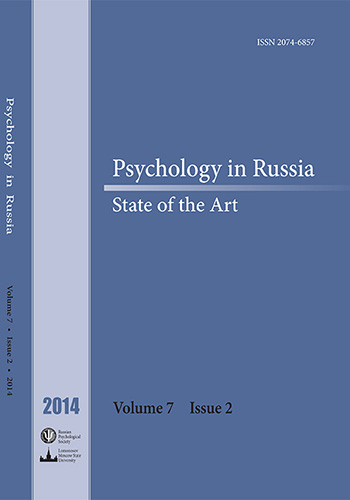Psychology in Russia: State of the Art, Moscow: Russian Psychological Society, Lomonosov Moscow State University, 2014, 2, 120 p.

2014
Volume 7 (02)
Volume 7 (02)
Theory and methodology
Psychology of education and learning
-
The role of motivation and system of values in the development of upper secondary school pupils' personalities
Psychophysiology
-
Human errors: their psychophysical bases and the Proprioceptive Diagnosis of Temperament and Character (DP-TC) as a tool for measuring
Clinical psychology
-
Psychological factors of propensity for alcoholism (social anxiety, hostility, Machiavellianism) in depressive patients
-
Representation of the disease, motivation sphere and medical communication as a target for prevention and treatment of HIV infection in substance users
Empirical research of contemporary social practices
-
Psychological adaptation in the info-communication society: The revised version of Technology-Related Psychological Consequences Questionnaire









